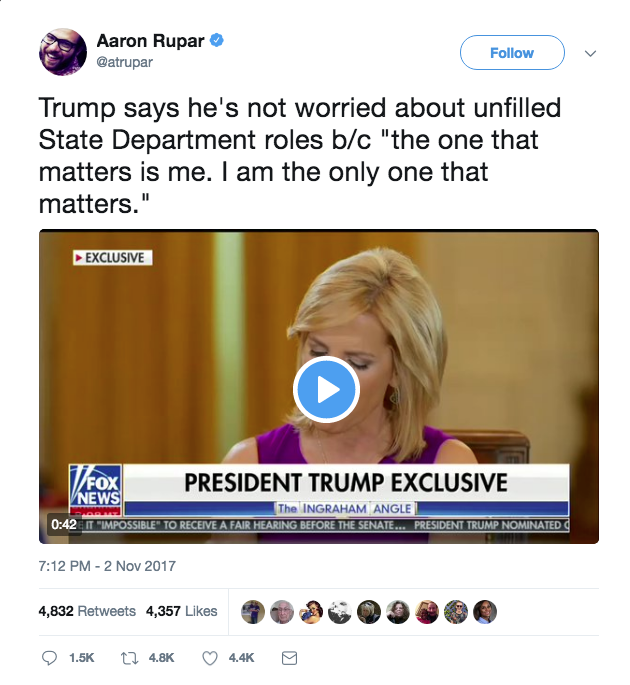February 12, 2008 by lonbud
The Winter of Our Discontent
…what is genuine, familiar, and identifiable is the way Americans beat the game: the land-taking before the airport is built, the quick bucks, the plagiarism, the abuse of trust, the near theft, which, if it succeeds, can be glossed over — these are the guilts with which Ethan will have to live in his coming prosperity…
— Edward Weeks, in a review of the John Steinbeck novel
The Winter of Our Discontent, The Atlantic Monthly, July 1961
And he cried mightily with a strong voice, saying Babylon the great is fallen, is fallen, and is becoming the habitation of devils, and the hold of every foul spirit and a cage of every unclean and hateful bird.
— The Book of Revelation, 18:2
Proving itself incapable of stemming the country’s slide into an abyss of lawlessness, The U.S. Senate today approved legislation “reforming” the official position on unfettered government surveillance of American citizens to one in which anything you say can and will be used against you.
As a bonus, the world’s most exclusive club made a priceless contribution to frantic, ongoing efforts to stimulate the American economy by approving retroactive immunity for telecommunications corporations that broke the law in conspiring to enable government violations of the fourth amendment to the Constitution.
Back in the misty dawn of Time, before anyone knew the name Osama bin Laden or imagined fundamentalist Muslims with a Medieval world-view might — from the comfort of their cave-dwellings in the mountains of Pakistan — bring to its knees the greatest civilization known to man, America had a chief executive who was, among other things, a paranoid megalomaniac. In those days, the American public cared about the power and value of the country’s founding documents and knew enough to drum Richard Milhous Nixon from office and send to Washington, DC elected representatives who would craft legislation to protect the country from future abuses along the lines of those relished by Mr. Nixon.
After years of congressional investigation into the legality of government’s domestic intelligence activities, in 1978 the 95th Congress passed and President James Earl Carter signed into law the Foreign Intelligence Surveillance Act (FISA). The act was created to provide Judicial and congressional oversight of the government’s covert surveillance activities of foreign entities and individuals in the United States, while maintaining the secrecy needed to protect national security. It allowed warrantless surveillance within the United States for up to one year unless the “surveillance will acquire the contents of any communication to which a United States person is a party.” [emphasis added] Where a United States person is involved, judicial authorization was required within 72 hours after surveillance begins.
On December 16, 2005, The New York Times published news of a government covert surveillance program operated by the National Security Agency under President George Walker Bush since at least 2001. The President initially admitted the existence of the program and while declining to reveal its details, sought to assure the public that “we’re talking about chasing down terrorists, we’re talking about getting a court order before we do so…constitutional guarantees are in place when it comes to doing what is necessary to protect our homeland.”
He was right about the constitutional guarantees being in place but he failed to mention that, as administered, the NSA surveillance program was a clear violation of those guarantees and of FISA regulations governing the domestic collection of intelligence on communication to which a United States person is a party.
As one might expect, aggrieved interests filed a host of legal challenges to the NSA program, naming both the government and private telecommunications companies defendants. At the same time, administration officials began working furiously in concert with well-funded and highly placed lobbyists, together with their beneficiaries in congress, to change the surveillance law to permit the NSA’s (still secret) activity, and to bestow blanket retroactive immunity upon any person or entity engaged in prior FISA violations.
In time, both houses of congress took up measures to amend FISA, finally passing the Protect America Act of 2007, which gave the Executive Branch unlimited authority to monitor any communication which begins or ends outside the United States, notwithstanding the otherwise conflicting language of FISA.
The Protect America Act, however, did not address the issue of retroactive immunity for previous FISA violations and was not itself an amendment of FISA. In addition, it’s provisions were written to expire on February 1, 2008, by which time it was expected congress would have completed work on a more permanent revision of FISA and resolved the outstanding retroactive immunity issue.
In its way, today’s action in the senate is no more than one of a thousand tiny cuts by which the American people have been systematically bled dry of freedom and security that once distinguished this nation as a beacon of hope in the world. And still, the death of The American Dream is not yet a fait accompli. Prosperity and greater relative freedoms remain the province of any American who can pass a background check, keeps a clean credit history, and has a REAL ID.
But there are guilts to be borne in our prosperity, and evidence of devils and foul spirits here on the rise; and now we line the cage of every unclean and hateful bird with the Rule of Law.



lonbud - February 12, 2008 @ 6:48 pm
I stole the Book of Revelations quote from Hunter S. Thompson’s obituary of Richard Nixon.
Read it again.
Bubbles - February 12, 2008 @ 10:04 pm
Let me see if I can be clear… Harry Reid is a Putz.
If he didn’t have the votes he could have let this FISA bill just die but he didn’t and then he acts like he was helpless in stopping the retroactive immunity. The pitch that we need these monopolies in the future for these purposes is bovine feces. It’s only an issue if we want them to act lawlessly in the future.
If we want them to comply with the law there’s no issue. If they had complied with the law (as some did) there would be no need for immunity.
There are so many other votes that make me want to scream about Reid… Like the AMT tax break extension that could have been paid for with taxes on hedge funds but no…. they got to him too.
God willing if the Democrats swamp the Republicans in November this senate leadership must also go.